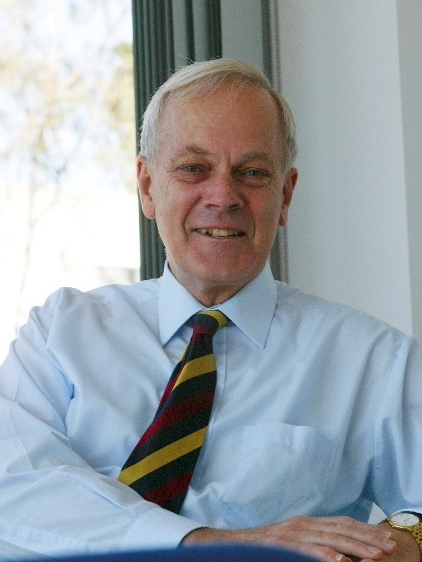
Control
and information architectures for formations
Prof. Brian D.O. Anderson
Australian National University
Formations of robots, underwater vehicles and autonomous airborne vehicles are slowly being deployed to tackle problems in both civilian and military spheresóbush fire control, surveillance and the like. In many situations, it is desirable that the formation maintain its shape while executing an overall change of location, or change from one shape to another, perhaps to avoid an obstacle; again, on occasions a formation may need to split, or merge with a different formation. Living organisms, especially fish and birds, often exhibit this sort of behaviour. The presentation will consider the types of control, communications and sensing architecture that allow scalability for formations with many individual agents, and allow preservation of the formation shape, merging, splitting, or closing ranks in the event of loss of one or more agents. The scalability requirement imposes a need for significant decentralization of information and control structures, and, just as in a formation of birds, no one bird can be expected to watch all other birds and compute its own trajectory using even partial knowledge of the trajectories of all other individual birds, so the amount of sensing, communication and control computation by any one agent has to be limited.
Professor Brian Anderson was born in Sydney, Australia. He took his undergraduate degrees in Mathematics and Electrical Engineering at Sydney University, and his doctoral degree in Electrical Engineering at Stanford University in 1966. His research interests have been principally in control systems, with significant work also in signal processing, telecommunications and circuit theory.
From 1990 to 1993 he was President of the International Federation of Automatic Control, and from 1994-2002 he was Director of the Research School of Information Sciences and Engineering at the Australian National University, and he served as President of the Australian Academy of Science from 1998-2002. He is currently Chief Scientist of National ICT Australia and Distinguished Professor in the Research School of Information Sciences and Engineering at ANU.
Professor Anderson is a Fellow of the Australian Academy of Science and Academy of Technology Sciences and Engineering, the Institute of Electrical and Electronic Engineers, the Royal Society, London; an Honorary Fellow of the Institution of Engineers, Australia and a Foreign Associate of the US National Academy of Engineering. He holds Honorary Doctorates from the Catholic University of Louvain, Belgium, the Swiss Federal Institute of Technology, and a number of Australian Universities.